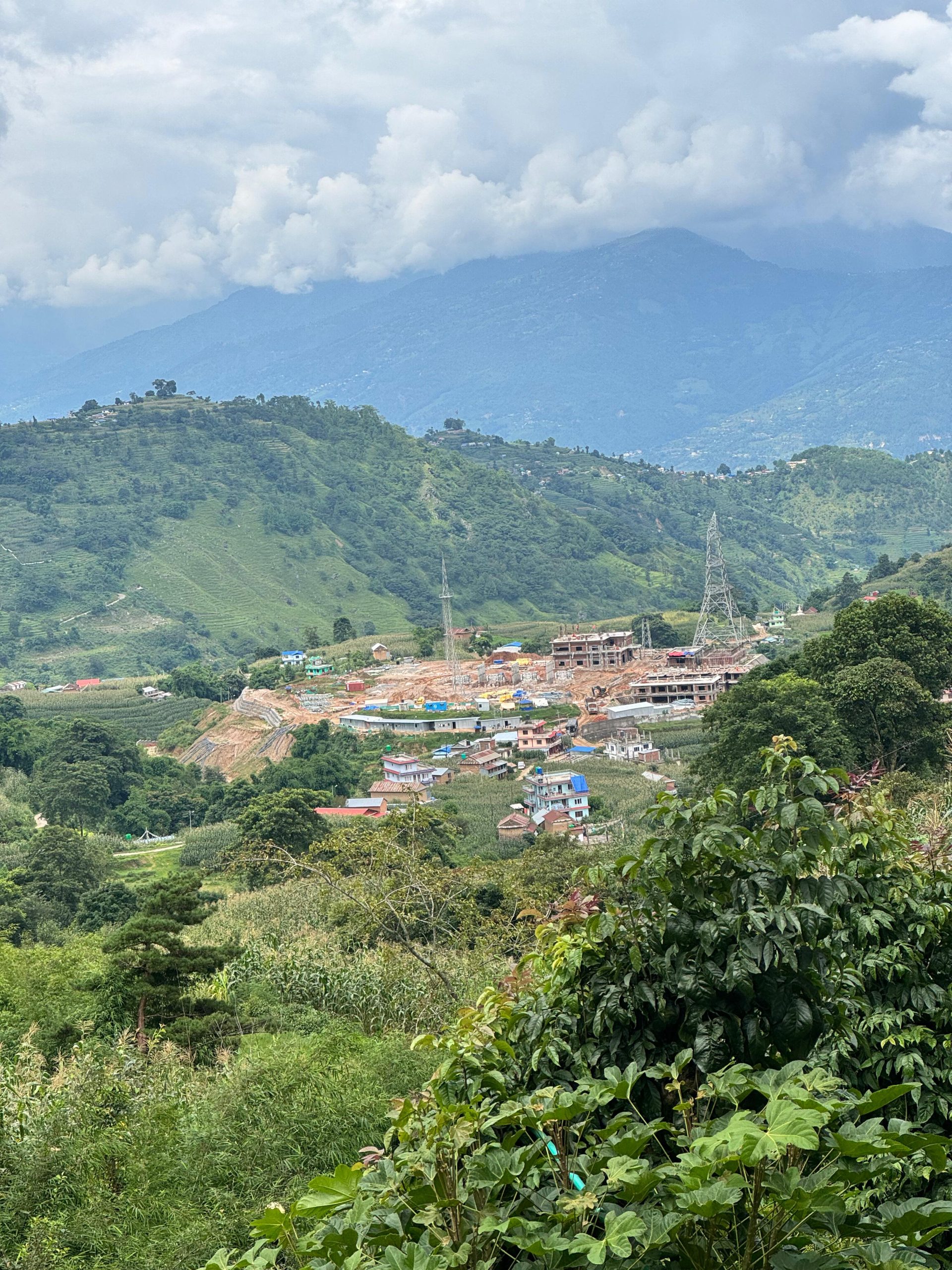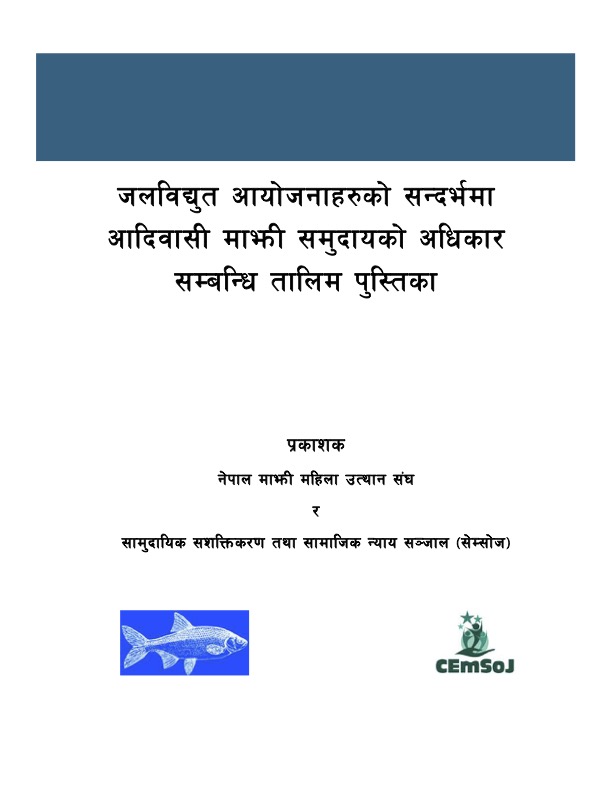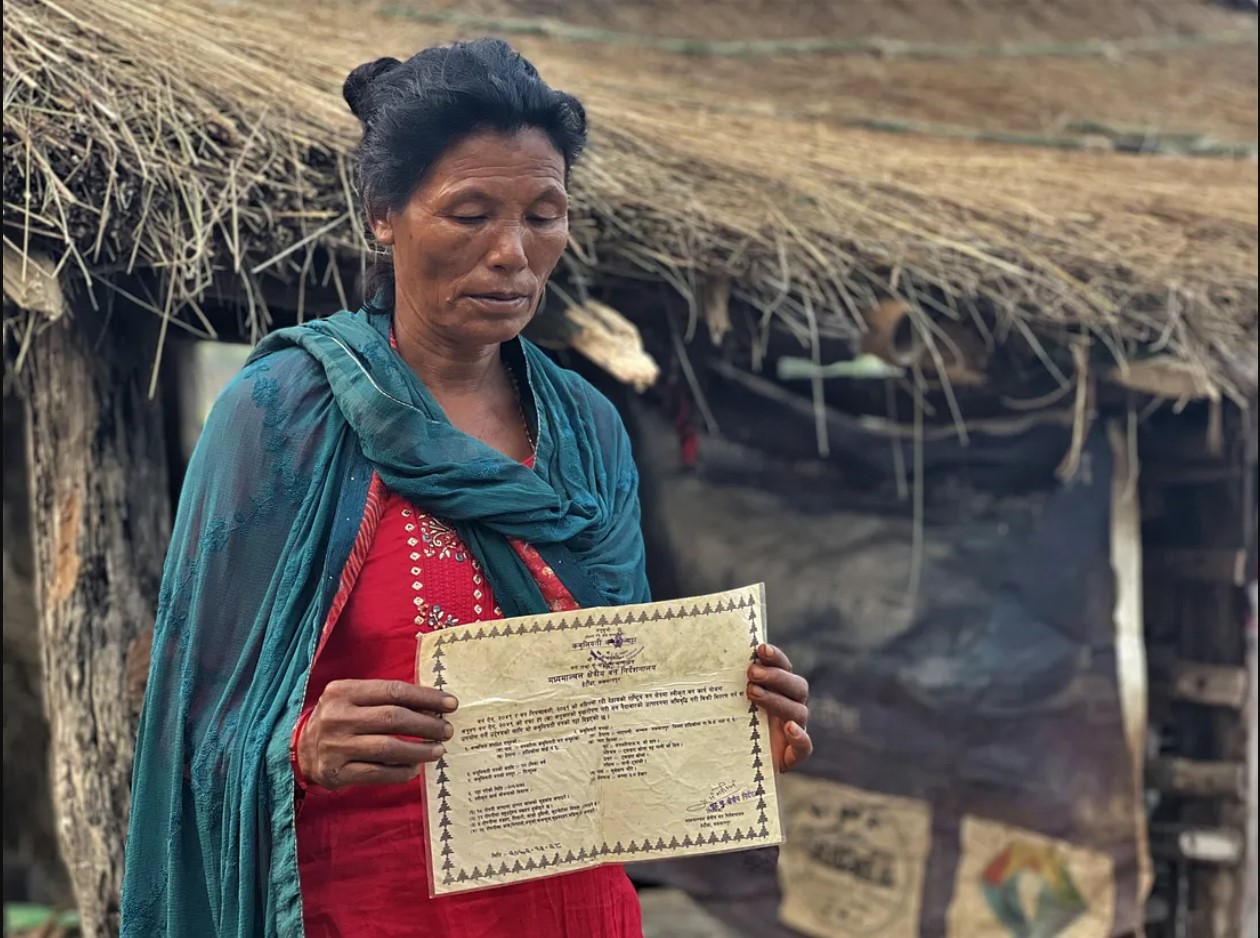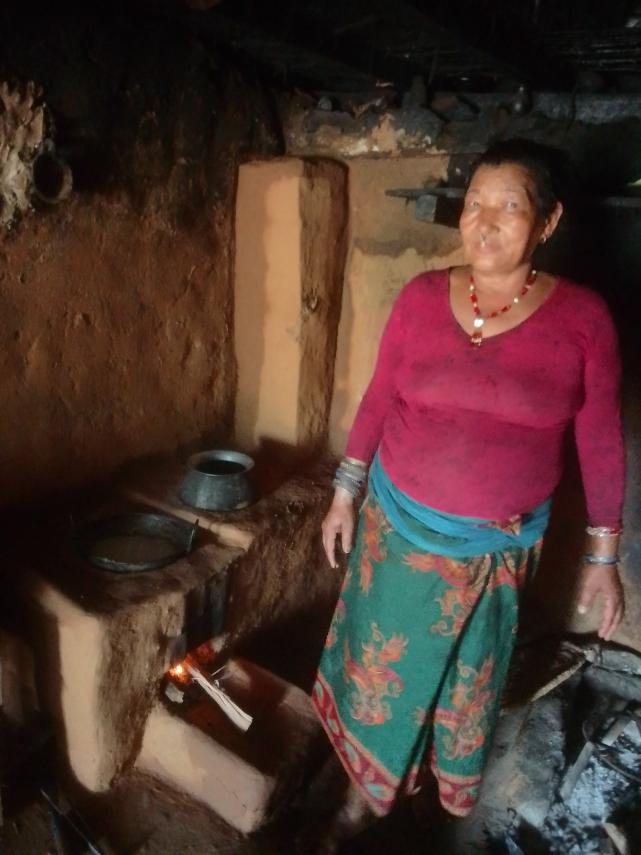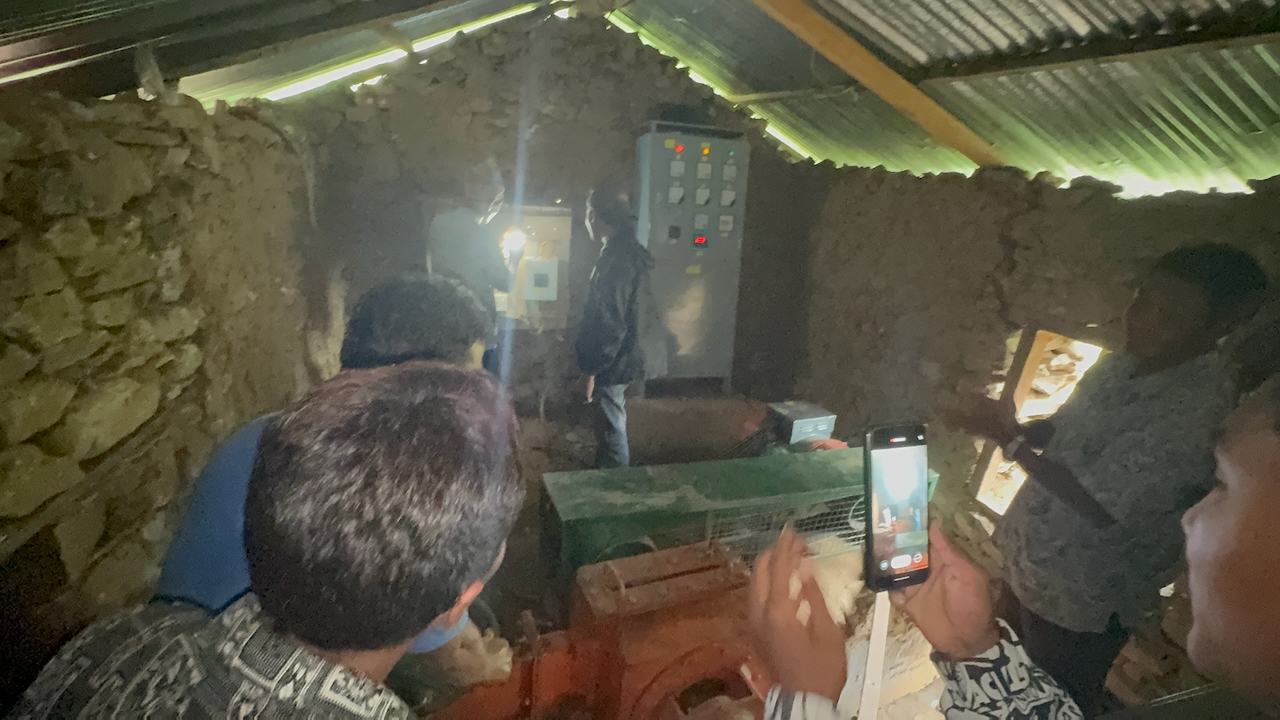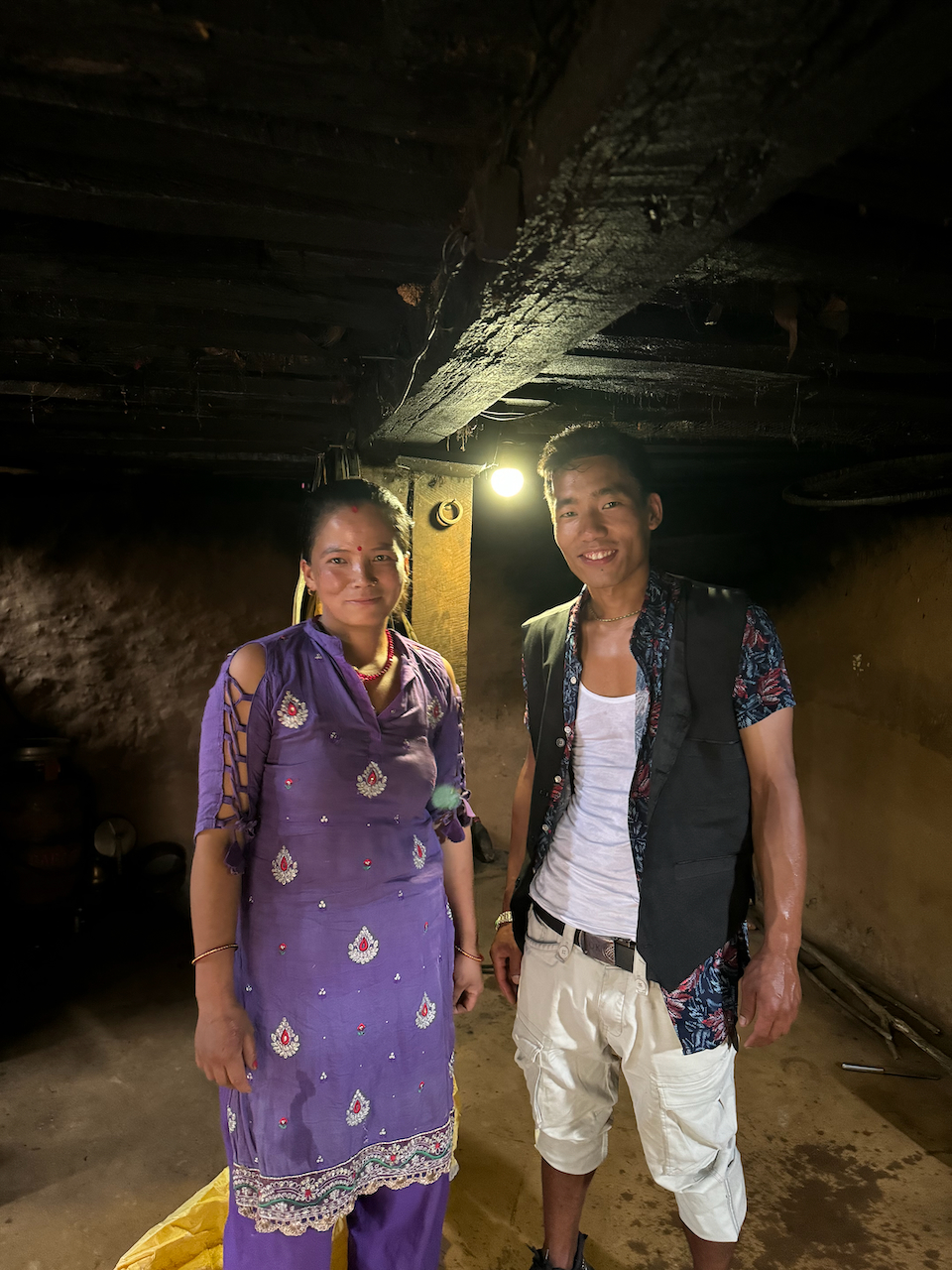काठमाडौंको उत्तरपूर्वमा अवस्थित शङ्खरापुर नगरपालिकाको बोझेनीका आदिवासी तामाङ र स्थानीय समुदायले आज एसियाली विकास बैंक (एडीबी) को जवाफदेहिता संयन्त्रको अनुपालन समीक्षा प्यानल (सीआरपी) मा उजुरी दर्ता गरेका छन्। उजुरीमा उनीहरूले बोझेनीमा निर्माणाधीन तामाकोशी-काठमाडौं २२०/४०० केभी प्रसारण लाइन र यसको सवस्टेसन स्थानान्तरण हुनुपर्ने उनीहरुको मागको सम्बन्धमा एडीबीको सुरक्षण नीति र कार्यविधि पालना भएको सुनिश्चित गर्न सीआरपीलाई अनुरोध गरेका छन्।
more “तामाकोशी-काठमाडौं प्रसारण लाइनबाट प्रभावित आदिवासी तामाङ तथा स्थानीय समुदायद्वारा एडीबीको अनुपालन समीक्षा प्यानलमा उजुरी”Tag: Nepal
Indigenous Tamang and local communities affected by Tamakoshi-Kathmandu Transmission Line file complaint to ADB’s Compliance Review Panel
Indigenous Tamang and local communities of Bojheni in Shankharapur municipality in the northeast of Kathmandu filed a complaint today with the Compliance Review Panel (CRP) of the Asian Development Bank’s (ADB) Accountability Mechanism. In the complaint, they have requested the CRP to ensure ADB’s Safeguards policy and procedural compliance in relation to their demands of relocation of the Tamakoshi–Kathmandu 220/400 kV Transmission Line and its substation in Bojheni being forcefully constructed on their lands.
more “Indigenous Tamang and local communities affected by Tamakoshi-Kathmandu Transmission Line file complaint to ADB’s Compliance Review Panel”नागढुङ्गा सुरुङ मार्ग निर्माण आयोजना प्रभावित परिवारहरूद्वारा जापान अन्तर्राष्ट्रिय सहयोग नियोग (जाइका)मा उजुरी
काठमाडौँ, नेपाल
नागढुङ्गा सुरुङ मार्ग निर्माण आयोजना प्रभावित परिवारहरूले आयोजनाका कारण खानेपानी र सिँचाइका स्रोतहरू सुकेको तथा घर र जग्गामा क्षति पुगेको भन्दै जापान अन्तर्राष्ट्रिय सहयोग नियोग (जाइका)मा आज उजुरी पेश गरेका छन्। आयोजनामा जाइकाको वातावरणीय तथा सामाजिक निर्देशिका (JICA Guidelines for Environmental and Social Considerations)को उल्लङ्घन भएको उल्लेख गर्दै उजुरीकर्ताहरुले जाइकाको निर्देशिका परीक्षकहरू (Examiners of the Guidelines)लाई दिएको उजुरीमा प्रभावित परिवारहरूलाई न्याय सुनिश्चित गर्न आयोजनाले निर्देशिका पालन गरे नगरेको अनुसन्धान गरी विवाद समाधान र मध्यस्थताको लागि अनुरोध गरेका छन्।
more “नागढुङ्गा सुरुङ मार्ग निर्माण आयोजना प्रभावित परिवारहरूद्वारा जापान अन्तर्राष्ट्रिय सहयोग नियोग (जाइका)मा उजुरी”Nepal’s Nagdhunga Tunnel Construction Project affected families file complaint with Japan International Cooperation Agency
Kathmandu, Nepal
Nagdhunga Tunnel Construction Project affected families in the northwest of Kathmandu have today filed a complaint with the Japan International Cooperation Agency (JICA) citing impactsof the project on their sources of drinking water and irrigation as well as damages to their houses and lands. In the complaint, they have alleged that the impacts contravene the JICA’s Guidelines for Environmental and Social Considerations and requested the Examiners for the Guidelines to investigate compliance of the project with the Guidelines and mediate to resolve dispute for ensuring remedies to the affected families.
more “Nepal’s Nagdhunga Tunnel Construction Project affected families file complaint with Japan International Cooperation Agency”Joint submission on the human rights situation of Indigenous Newa communities made to the UN for the 4th Universal Periodic Review of Nepal
Community Empowerment and Social Justice Network (CEMSOJ), Save Nepa Valley (SNV) Movement and Thāe Bāe Yā Lwāpu made a joint submission for the 4th Universal Periodic Review (UPR) of Nepal. The UPR is a unique process which involves a review of the human rights records of all UN Member States and is held under the auspices of the UN Human Rights Council. The submission presents key human rights challenges faced by indigenous Newa communities, particularly in the context of “development” and business projects in Nepal and the systematic violations of rights to housing and property as well as cultural rights of the Jugi community within the Indigenous Newa nationality of Nepal. It also examines the compliance of the Government of Nepal with relevant recommendations received during the 3rd and 2nd UPR cycles of Nepal related to the rights of Newa and other Indigenous nationalities.
more “Joint submission on the human rights situation of Indigenous Newa communities made to the UN for the 4th Universal Periodic Review of Nepal”जलविद्युत आयोजनाहरुको सन्दर्भमा आदिवासी माझी समुदायको अधिकार सम्बन्धि तालिम पुस्तिका
वि.सं. २०८१ चैत १५
जलविद्युत आयोजनाहरुको सन्दर्भमा आदिवासी माझी समुदायको अधिकार विषयक यस तालिम पुस्तिकाले आदिवासी माझी समुदायलाई सशक्त बनाउनको लागि एक बृहत् स्रोतको रुपमा काम गर्ने उद्देश्य लिएको छ । यसले जलविद्युत परियोजनाहरूको प्रभावको सन्दर्भमा समुदायको अधिकारको वकालतको लागि जनचेतना अभिबृद्धि र क्षमता विकासको लागि तत्काल रहेका आवश्यकताहरूलाई सम्बोधन गर्ने लक्ष्य राखेको छ । यो पुस्तिका माझी समुदायका अगुवा, अधिकार प्रतिरक्षक र अन्य मानवअधिकार तथा आदिवासी अधिकार प्रतिरक्षकहरूलाई सुनकोशी–३ र दुधकोशी जलविद्युत आयोजनाहरूको सम्बन्धमा बुझाई वृद्धि, अन्तर्राष्ट्रिय र राष्ट्रिय कानून अन्तर्गत आदिवासी जनजातिको अधिकारको प्राविधिक ज्ञान, व्यवहारिक वकालत, तालिम र जनचेतना अभिबृद्धिका लागि सीप विकासमा सहयोग गर्न तयार पारिएको छ ।
more “जलविद्युत आयोजनाहरुको सन्दर्भमा आदिवासी माझी समुदायको अधिकार सम्बन्धि तालिम पुस्तिका”Displaced and Landless: Endangered Indigenous Bankariya living in the buffer zone of Parsa National Park in Nepal
This summary report aims to analyze the human rights challenges of Nepal’s endangered Indigenous Bankariya people, particularly to their lands and forest resources, due to Parsa National Park in the south of the country. Traditionally a nomadic group living in forests, Bankariyas were provided six hectares of leasehold forests, where they currently live in informal settlements. The leasehold forests were later incorporated in the buffer zone of the Parsa National Park. Almost two decades later, Bankariyas now face the same challenge as around 6 million people of 34 districts living in buffer zones of various protected areas of Nepal. They do not have titles to the lands that they have been living on, using or occupying for generations. As a result, they face threats of forced evictions and displacement from their current settlement upon expiry of their lease and in lack of land titles.
more “Displaced and Landless: Endangered Indigenous Bankariya living in the buffer zone of Parsa National Park in Nepal”Improved Cooking Stoves training provided and construction undertaken at Chyaurang village in Makwanpur
On 25 May 2024, CEMSOJ provided a training on construction and maintenance of Improved Cooking Stove to Indigenous Tamangs and Chepangs of Chyaurang, Saleni Taar and Sukhel villages of Raksirang rural municipality in remote hills of Makawanpur district in southern Nepal. The Stoves are aimed to particularly benefit Indigenous women of the villages of Ward no. 9 of the rural municipality.
more “Improved Cooking Stoves training provided and construction undertaken at Chyaurang village in Makwanpur”15-kW Sankhar Khola Micro Hydropower Project set up at Dhirang village in remote hills of southern Nepal
On 26 May 2024, CEMSOJ inaugurated a 15-kW Sankhar Khola Micro Hydropower Project at Dhirang village of Raksirang rural municipality in remote hills of Makawanpur district in southern Nepal. The project will bring stable electricity for at least 120 households – all Indigenous Chepangs – from Dhirang, Darang, Garling and other villages in Ward no. 7 of the rural municipality.
more “15-kW Sankhar Khola Micro Hydropower Project set up at Dhirang village in remote hills of southern Nepal”4-kW Sisneri Peltric Set Pico Hydropower Project inaugurated at Chyaurang village of Makwanpur district in southern Nepal
On 24 May 2024, CEMSOJ inaugurated a 4-kW Sisneri Peltric Set Pico Hydropower Project at Chyaurang village of Raksirang rural municipality in remote hills of Makawanpur district in southern Nepal. The project will bring stable electricity for at least 37 Indigenous Tamang and Chepang households in Chyaurang, Bhyalche, Tikuti and other villages of Ward no. 9 of the rural municipality.
more “4-kW Sisneri Peltric Set Pico Hydropower Project inaugurated at Chyaurang village of Makwanpur district in southern Nepal”